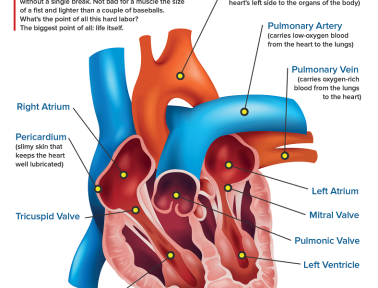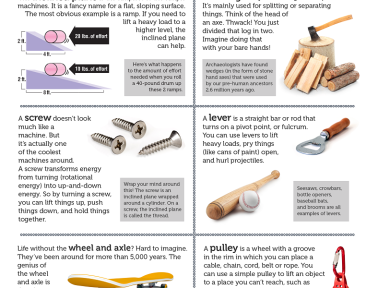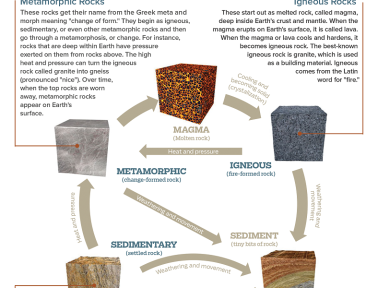As I sat in the waiting room of a doctor’s office not too long ago, I flipped through a family magazine and was taken aback by an advertisement. The picture showed a mother with a baby in her lap, both looking enthusiastically at a computer screen as flashcard-like images of apples and dogs and the Eiffel Tower played before them. In bold letters, the advertisement promised a computer program that would make your (otherwise dreadfully average) child a genius.
This image and its promise has played over in my mind for quite some time. As I’ve ruminated on the motivation and subtext of such an advertisement and the program it promotes, I have come to wonder if many of us have a terrible misunderstanding of true intelligence.
As we look at a list of skills a child should master at a certain benchmark, we have a tendency to translate that into a data in, data out situation. If the skills chart says a kindergartener should be able to describe “three signs of autumn” we instantly and conveniently translate that into an exercise in factual repetition. A state and repeat format. We tell them: 1-the air gets colder, 2- the leaves change color, and 3- the leaves fall down. Three signs of autumn: check.
But these types of standards are meant to represent the types of experiences a child should have. If a child has experienced autumn– the sound of leaves under foot on a walk, the subtle crispness of the air in the morning, and has collected leaves of every brilliant color– that child really understands autumn, and could list more than just three signs.
Too many of us view intelligence as something transmitted, like a file download. We tell our children the facts, they repeat them, and *boom* they’re intelligent. We assume that if we flash an image of an apple at a toddler and get her to repeat the word, she knows what an apple is. (And isn’t she advanced?) But does she know what the apple feels like in her hand? Does she know what it tastes like? Does she know what happens if you drop it?
Artificial intelligence is the intelligence of machines. It’s written in programs and produces devices capable of amazing things. Creators can simply input information, and it’s operable. But artificial intelligence can not compare with true intelligence. It cannot reason, problem-solve, build emotional connections, or communicate ideas creatively. That is the unique and advanced ability of human intelligence. But do we always seek for that advanced intelligence for our children?
Real intelligence requires experience. Knowing something from all angles so that you can rearrange the parts and create a new and innovative solution. It requires the ability to reason and make connections, connections that are created by active involvement.
I heard recently that medical schools are running into some unique challenges these days. For quite some time, medical students have learned about the heart and its functions through the old pump analogy. While many students could never have come to medical school having had a vast experience with a human heart, many had had experiences with working a pump. The connections could be made and understanding could be quickened because the students had seen one, used one, fixed one, and/or disassembled one.
Today however, many students come to medical school with a vast knowledge of terms and facts, but few have actual experience with a pump. Suddenly the analogy lacks meaning because there is a lack of experience.
As parents and teachers we often feel pressure to give children all the new and best our age of technology and information has to offer. But can that be at the expense of experience?
I read an article quite some time ago with a quote that struck me and resonated with me. It reads:
“I tell parents that the best toy they can give their children is
themselves,” said Dr. Khanh-Van Le-Bucklin, M.D., an academic pediatrician with the University of California, Irvine, … “No
educational toy, TV program or video can positively affect a child’s
development like time spent with an engaged and talking adult. ..
Live conversation and interaction give children the most meaningful
experiences.”
If we want information to be instantly received and repeated, we should learn computer programming. But if we want truly intelligent children, we need to give them our time and attention and experience the world together. When we read facts-based standards, we need to connect that to experiences, not just data. If children should be able to recognize shapes, for example, we should give them experience with blocks and tangrams, and talk about them as they hold them and create with them. We should go on shape hunts and create pictures with shapes. We should read books about shapes and sing songs about shapes. To simply hold up two-dimensional pictures and run a shape-name drill is seeking a lesser intelligence.
I don’t mean to say that there isn’t room for memorization or quick data-recall exercises, but if that memory isn’t built on experience, it will hold less meaning and be applied more rigidly than a concept or idea that has been experienced.
We, as humans, are not computers. We don’t gain true intelligence by a simple process of data input. We aren’t waiting for the newest download or the most recent “app” to simply insert new information for us to process. I personally believe that we were created by a truly Intelligent and Divine Being. And that we were created in order to experience. That through that experience we could grow in knowledge and wisdom. I’m sure that if He wanted to, our Creator could instantly “download” all the knowledge He hopes for us to attain. But instead, He allows us to learn through experience. Shouldn’t we seek the same for our children as He does for His?
Top photo by Sebastian Ploszaj.
<!–
–>










